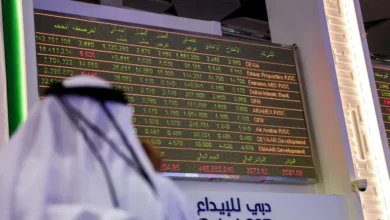
The High Court has ruled that the Housing Levy, a central component of the Finance Act 2023, was properly enacted.
The ruling was delivered Tuesday October 22, 2024 by Justice Olga Sewe, John Chigiti and Josephine Mong’are.
The judges said that there was adequate public participation in implementing the Act.
Six petitions challenging the housing levy among other provisions of the Affordable Housing Act were filed but later consolidated.
Among them is one filed by 22 senators led by Busia Senator Okiya Omtatah and seven other human rights defenders.
The ruling is a lifeline for President William Ruto, as the state aims to construct 250,000 housing units annually.
The units comprise bed-sitters (studios), two and three-bedroom apartments for affordable housing, and one, two, and three-bedroom apartments for social housing, targeting residents of slum areas.
Also Read: Ruto’s Trip to India Yields 5 Deals Including Affordable Housing Units
Affordable Housing Levy Contributions
Kenyan are contributing approximately Ksh.5.5 billion monthly towards the housing levy, as disclosed by Housing Principal Secretary Charles Hinga.
This figure represents an average, suggesting that the actual amount may be higher, particularly since the levy predominantly targets salaried individuals.
In May, Hinga informed the National Assembly’s Committee on Housing, Urban Planning, and Public Works that by April of this year, the State Department for Housing had amassed Ksh.34.72 billion from Kenyans.
However, only Ksh.6.93 billion has been utilized for the development of affordable housing units since the enactment of the Affordable Housing Fund Act on March 19, 2024.
“On average, we are collecting Ksh.5.5 billion every month from the affordable housing levy,” said PS Hinga when he appeared before the National Assembly’s Committee on Housing, Urban Planning and Public Works.






This is the precise blog for anyone who wants to search out out about this topic. You notice so much its nearly hard to argue with you (not that I truly would want…HaHa). You definitely put a new spin on a subject thats been written about for years. Nice stuff, just great!
I am not rattling wonderful with English but I find this real easygoing to understand.
I am really loving the theme/design of your site. Do you ever run into any web browser compatibility issues? A small number of my blog readers have complained about my blog not operating correctly in Explorer but looks great in Opera. Do you have any tips to help fix this issue?
Incredible! This blog looks just like my old one! It’s on a entirely different topic but it has pretty much the same layout and design. Great choice of colors!
I have fun with, cause I found exactly what I was having a look for. You’ve ended my 4 day long hunt! God Bless you man. Have a nice day. Bye
Real excellent information can be found on site. “Every obstacle yields to stern resolve.” by Leonardo DaVinci.
Today, I went to the beachfront with my kids. I found a sea shell and gave it to my 4 year old daughter and said “You can hear the ocean if you put this to your ear.” She placed the shell to her ear and screamed. There was a hermit crab inside and it pinched her ear. She never wants to go back! LoL I know this is totally off topic but I had to tell someone!
Good post. I learn something tougher on completely different blogs everyday. It should all the time be stimulating to read content from different writers and follow slightly something from their store. I’d favor to use some with the content material on my weblog whether or not you don’t mind. Natually I’ll offer you a hyperlink on your net blog. Thanks for sharing.
Hello.This post was really remarkable, particularly because I was investigating for thoughts on this issue last Sunday.
Throughout the awesome design of things you get a B- just for hard work. Where exactly you actually confused me personally was first on the details. As they say, details make or break the argument.. And it couldn’t be much more accurate at this point. Having said that, allow me reveal to you exactly what did do the job. Your article (parts of it) is definitely quite convincing and this is probably the reason why I am making the effort to opine. I do not make it a regular habit of doing that. Next, even though I can notice the jumps in logic you make, I am not confident of how you appear to connect your points which inturn help to make your final result. For right now I will yield to your point but hope in the foreseeable future you actually connect your facts better.
I am not sure where you are getting your info, but good topic. I needs to spend some time learning much more or understanding more. Thanks for excellent information I was looking for this information for my mission.
Very interesting details you have remarked, thanks for putting up. “I love acting. It is so much more real than life.” by Oscar Wilde.
Very interesting points you have mentioned, appreciate it for posting.
Can I simply say what a reduction to search out somebody who truly knows what theyre speaking about on the internet. You definitely know learn how to carry a difficulty to mild and make it important. More people need to learn this and perceive this facet of the story. I cant imagine youre not more in style because you positively have the gift.
Can I just say what a relief to find someone who actually knows what theyre talking about on the internet. You definitely know how to bring an issue to light and make it important. More people need to read this and understand this side of the story. I cant believe youre not more popular because you definitely have the gift.
Great write-up, I am normal visitor of one¦s site, maintain up the nice operate, and It is going to be a regular visitor for a lengthy time.
I think you have noted some very interesting details, appreciate it for the post.
I genuinely enjoy examining on this site, it holds superb blog posts. “A short saying oft contains much wisdom.” by Sophocles.
I am always invstigating online for tips that can help me. Thx!
Keep up the wonderful piece of work, I read few articles on this site and I conceive that your weblog is real interesting and has got lots of good info .
Wow! This blog looks just like my old one! It’s on a entirely different subject but it has pretty much the same page layout and design. Superb choice of colors!
I believe this website has got very superb indited subject material articles.
I have been reading out many of your articles and it’s pretty good stuff. I will make sure to bookmark your site.
I carry on listening to the rumor lecture about receiving boundless online grant applications so I have been looking around for the finest site to get one. Could you tell me please, where could i acquire some?
I appreciate, cause I found exactly what I was looking for. You’ve ended my four day long hunt! God Bless you man. Have a nice day. Bye
As soon as I found this website I went on reddit to share some of the love with them.
Wow! This could be one particular of the most useful blogs We have ever arrive across on this subject. Basically Great. I am also an expert in this topic therefore I can understand your effort.
Great write-up, I’m normal visitor of one’s web site, maintain up the nice operate, and It’s going to be a regular visitor for a long time.
I will right away grasp your rss feed as I can not to find your email subscription hyperlink or newsletter service. Do you have any? Please allow me know in order that I may subscribe. Thanks.